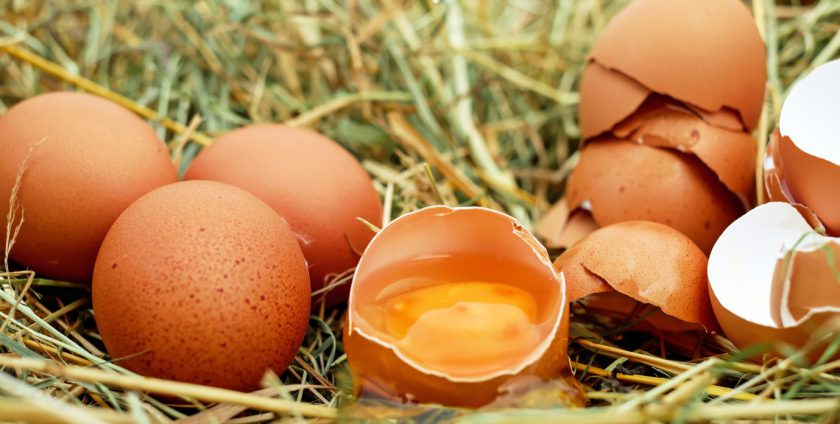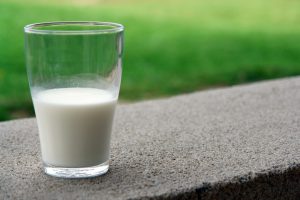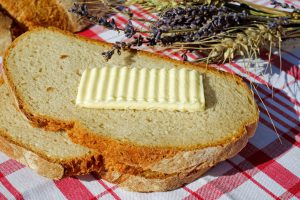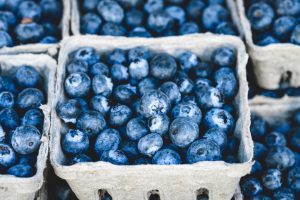Dispelling Myths

Nutrition on the web is a minefield of helpful health information, but also one of misconception. Examples include red meat is bad for us, gluten-free foods are healthier for everybody…eggs are good for you…eggs are bad for you…some foods are “superfoods”…
We seem to love speculating about food. It comes from a good place: we love our food; we want to know about what is good or bad for us. However, there is a lot of misconception and rumour out there now – especially with the recent rise of public interest in nutrition.
Here my top ten myths to dispel:
“Eggs are bad for your heart”
People often confuse dietary and blood cholesterol: if you eat an egg, there isn’t a spike in blood cholesterol as such, although your total saturated fat intake (including butter, lard, fatty meats
and meat products) is something to mindful of, especially if you are at risk of heart disease. Eggs themselves contain cholesterol, but the effect on blood cholesterol is minimal and they have plenty of nutritional plusses – protein (including all nine essential amino acids), Vitamin B12, Vitamin D etc. If you’re healthy, use lower fat methods of cooking them (i.e. not fried) and eat in moderation – you can’t beat an egg. They are versatile, quick and easy to prepare so hang on to them and don’t exclude…
“Carbs make you fat”
Too many calories make you overweight. Fat provides more than double the amount of calories per gram compared to carbohydrate. “Carbs” are vilified because certain carbohydrate-restrictive diets – which may work in the short term if you stick to them – have become fashionable. But these diets are not natural, not healthy, not sustainable and people tend to put the weight back on. Restricting carbohydrates restricts your nutrition – lots of healthy things are carbohydrate-based, although it’s better to stick to low GI (glycaemic index) or wholegrain carbs and cut back on the processed versions such as sugar, white bread, biscuits etc. Remember fruits and vegetables contain carbohydrates and no one suggests cutting back on those! Carbohydrates also help you train better if you’re that way inclined. And while we often tend to eat to much in general, it’s rarely a good idea to severely restrict your diet in any one area – this absolutely includes carbohydrates.
“Milk is bad for you”
 Milk has also been up and down in public estimation in recent years: although it seems strange to drink the lactation of another mammal (no other animal does this), it does provide the general population with a good deal of nutrition. Unless an individual is allergic or intolerant to lactose (the sugar found in milk), there is no real health advantage in avoiding it . That said a lot of people cut out milk and dairy products, without perhaps realising that you significantly reduce your calcium intake and other nutrients including protein, calcium, Vitamin A and some essential amino acids. Consult with a Registered Dietitian if it becomes necessary to avoid milk in the long term.
Milk has also been up and down in public estimation in recent years: although it seems strange to drink the lactation of another mammal (no other animal does this), it does provide the general population with a good deal of nutrition. Unless an individual is allergic or intolerant to lactose (the sugar found in milk), there is no real health advantage in avoiding it . That said a lot of people cut out milk and dairy products, without perhaps realising that you significantly reduce your calcium intake and other nutrients including protein, calcium, Vitamin A and some essential amino acids. Consult with a Registered Dietitian if it becomes necessary to avoid milk in the long term.
“Breakfast like a king”
Now then… For years breakfast has been the most important meal of the day (it still is largely to be honest). And – rule of thumb – it’s sensible to eat in the morning, kick-start your metabolism, be less tempted to overeat at lunch etc. I still believe having a proper breakfast is the healthiest option for me personally. But maybe it isn’t for you. New research suggests it may be more individual than previously thought. Breakfast is a good idea in general but if it doesn’t work for you then that’s just fine!
“Coconut oil is the healthier oil option”
Wrong. Coconut oil has a lot more saturated fat than plant-based oils (92%). Yes, it tastes great when used in certain Asian dishes and a little goes a long way but overall, this is another classic fad food which could impact on your cholesterol level in the longer term: so stick to just using it as moisturiser unless you run out of olive or rape seed oil.
“Anyone can benefit from eating gluten-free”
Companies that manufacture gluten-free products can certainly benefit! Gluten-free does not mean lower in calories or healthier so, unless you suffer from Coeliac disease (or gluten intolerance (often a temporary problem, secondary to digestive conditions such as irritable bowel syndrome ), there’s really no benefit. Avoiding gluten may result in weight loss, simply because some gluten free foods are not that palatable. If you suspect you are gluten intolerant – don’t eat a pizza that has the texture of a flip-flop – see a dietitian.
“Saturated fat is bad for you”
There is a place for saturated fat in your diet (see section on eggs above), but saturated fats lack the cardio-protective attributes of mono and polyunsaturated fats. In the UK, however, we eat too much saturated fat – this is bad for you. National guidelines advise no more than 30 grams/day for an average man aged 19-64years and no more than 20 grams/day for the average woman aged 19-64 years. Trans fats are the only fat you absolutely shouldn’t consume, otherwise it’s all about moderation.
“Don’t eat just before bed”
Largely true. Generally, if you think about food you need rather than food you crave, you are less likely to do something like gain weight. There is individual variation but, practically speaking, it is often just more calories in your day (e.g. biscuits before bed) and can interrupt your digestion and sleep pattern secondary to an increased cortisol level.
“Eat little and often”
This might true for some but depends on the individual, for example: how disciplined/skilled you are at counting calories and whether your lifestyle or occupation is predominantly active or otherwise. Snacking can be an excellent way of getting fat if you largely consume high fat, high sugar foods. We do know however that eating ‘little and often’ can help lower cholesterol levels, a protein rich snack improves appetite control (satiety), and personally I’ve found it works with building muscle. Many sports people both recreational and professional, need 6 small meals a day just to ensure they have enough protein and energy.
“Superfoods”
 Blueberries, green tea, garlic…they are super, but scientifically/officially there is no such term. Having this term is probably not a bad thing apart from corporate monopolising and remember many unprocessed, fresh foods can be considered ‘super’, but do not get the accolades they deserve. For example dont waste your money on goji berries, chia seeds or black rice, simply increase your intake of local or seasonal fruit, particularly berries, optimise on your vegetable consumption, add wholegrain cereals to your diet and consider a piece or two of high cocoa chocolate a few times a week, as providing you with ‘superfood’.
Blueberries, green tea, garlic…they are super, but scientifically/officially there is no such term. Having this term is probably not a bad thing apart from corporate monopolising and remember many unprocessed, fresh foods can be considered ‘super’, but do not get the accolades they deserve. For example dont waste your money on goji berries, chia seeds or black rice, simply increase your intake of local or seasonal fruit, particularly berries, optimise on your vegetable consumption, add wholegrain cereals to your diet and consider a piece or two of high cocoa chocolate a few times a week, as providing you with ‘superfood’.
Maybe you dispel food myths yourself?
Let us know your pet hates! Or if you’ve heard something you’re not sure about and you’d like to know, let us know by commenting below!
This blog is written by a student dietitian, with scientific and medical detail reviewed by a Registered Dietitian and a Consultant Gastroenterologist.
0 Comment


Leave a Reply